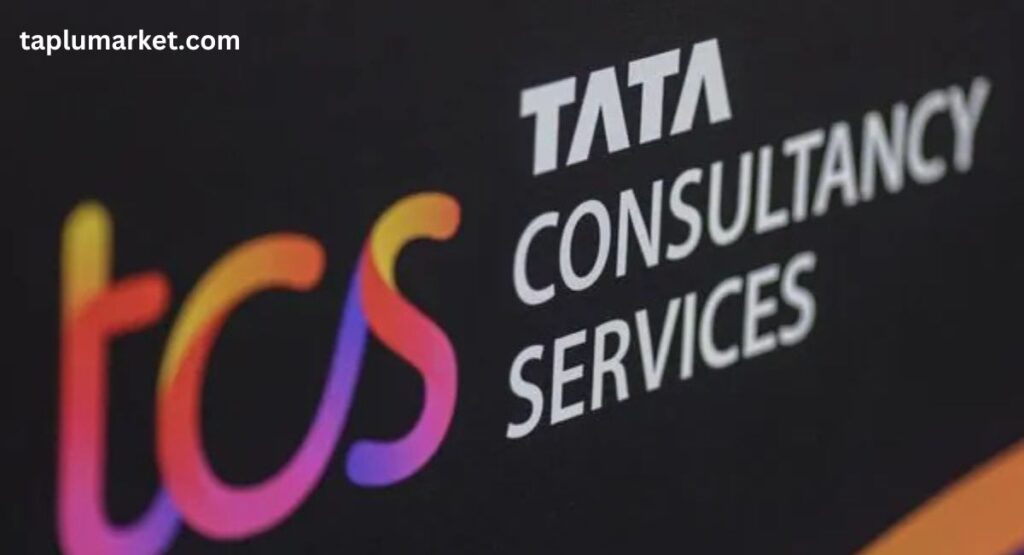Tata Consultancy Services (TCS), a flagship company of the Tata Group, is India’s largest IT services firm and a global leader in digital transformation, cloud computing, and AI-driven solutions. With a market capitalization exceeding $170 billion, TCS serves Fortune 500 companies across banking, healthcare, retail, and technology sectors, making it a cornerstone of many investment portfolios. Investors closely monitor TCS Share Price Target (2025 to 2030) due to its consistent revenue growth, high-profit margins, and strong dividend payouts—key traits of a stable blue-chip stock.

As we look ahead to 2025–2030, understanding TCS’s share price potential becomes crucial for investors planning long-term wealth creation. This article provides a data-driven forecast analyzing historical trends, financial health, competitive positioning, and macroeconomic factors that could influence TCS’s stock trajectory. Whether you’re a long-term investor evaluating TCS’s growth prospects or a trader seeking price targets, this analysis will help you make informed decisions backed by expert insights and reliable projections.
Key Factors Influencing TCS Share Price (2025-2030)
The future TCS Share Price Target (2025 to 2030) will be shaped by a mix of industry trends, financial performance, and external economic conditions. Here’s a detailed breakdown of the top factors that could drive or hinder TCS’s stock growth:
1. Global IT Demand & Digital Transformation
- The worldwide shift to cloud computing, AI, and automation will fuel demand for TCS’s services.
- Enterprises investing in digital transformation (especially in BFSI, healthcare, and retail) will boost TCS’s order book.
- Geopolitical factors (onshoring vs. offshoring trends) may impact IT spending in the US & Europe—key markets for TCS.
2. TCS Financial Performance (Revenue, Margins, Profit Growth)
- Revenue Growth: TCS’s ability to secure large deals (e.g., $1B+ contracts) will determine its revenue trajectory.
- Operating Margins: Efficiency in managing costs (salaries, subcontracting) will impact profitability.
- PAT (Profit After Tax): Consistent double-digit growth could attract institutional investors.
3. Dividend Policy & Share Buybacks
- TCS has a history of stable dividends (payout ratio ~80-90%), making it attractive for income investors.
- Future share buybacks (like the ₹18,000 crore buyback in 2022) could support stock prices by reducing supply.
4. Competition (Infosys, Wipro, Accenture)
- Infosys & Wipro compete for the same clients—TCS must maintain pricing power and service quality.
- Accenture’s dominance in consulting poses a challenge—TCS may need more high-margin advisory services.
5. Macroeconomic Factors (Inflation, Interest Rates, Recession Risks)

- US/EU recessions could lead to IT budget cuts, slowing TCS’s growth.
- Rupee depreciation (USD/INR) benefits TCS’s export revenues but increases operational costs.
- Fed rate cuts (2024-25) may boost tech spending, aiding TCS’s stock performance.
6. Technological Advancements (AI, Cloud, Automation)
- Generative AI adoption (TCS’s AI.Cloud platform) could open new revenue streams.
- Cloud migration demand (AWS, Azure partnerships) will be a key growth driver.
- Automation reducing costs may improve margins but could also impact headcount growth.
TCS Share Price Forecast 2025: Bull vs. Bear Outlook
As investors assess Tata Consultancy Services (TCS) for potential growth, understanding its 2025 share price trajectory requires analyzing past trends, expert forecasts, and key market triggers. Here’s a detailed breakdown:
1. Historical Performance Recap (2020-2024)
TCS has demonstrated resilience despite global economic fluctuations:
| Year | TCS Share Price (Approx.) | Key Events |
|---|---|---|
| 2020 | ₹1,800 – ₹2,200 | COVID-19 slump, then recovery due to digital demand |
| 2021 | ₹2,500 – ₹3,500 | Tech boom, record deal wins ($9.2B in Q3) |
| 2022 | ₹3,200 – ₹3,800 | Russia-Ukraine war, margin pressures |
| 2023 | ₹3,100 – ₹3,600 | Global IT slowdown, reduced discretionary spending |
| 2024 | ₹3,500 – ₹4,000* | AI-driven growth, Fed rate cut optimism |
(*2024 price range as of mid-year projections.)
Takeaway: TCS has maintained a 10-15% CAGR despite volatility, supported by steady dividends and buybacks.
2. TCS Share Price Target 2025: Analyst Predictions
Analysts are divided on TCS’s 2025 outlook, depending on macroeconomic and sector-specific trends:
| Scenario | Price Target (₹) | Rationale |
|---|---|---|
| Bullish Case | ₹4,500 – ₹5,000 | – Strong deal pipeline ($10B+ TCV) – AI/cloud adoption accelerates – Fed rate cuts boost tech spending |
| Base Case | ₹4,000 – ₹4,500 | – Steady 8-10% revenue growth – Stable margins (24-26%) – Moderate IT budget growth |
| Bearish Case | ₹3,200 – ₹3,800 | – Global recession hits IT spending – Rising competition squeezes margins – Currency volatility (USD/INR) |
Consensus: Most brokerages (Morgan Stanley, Kotak Securities) project a base target of ₹4,200-₹4,500 for 2025.
3. Key Triggers That Could Push TCS Stock Higher in 2025
US Soft Landing: Stable interest rates may revive enterprise tech spending.
Mega-Deal Wins: Large contracts (>$1B) in BFSI or healthcare sectors.
AI Monetization: Success of TCS’s AI.Cloud platform in client solutions.
Dividend Hike: Increased payouts (current yield ~1.5%) could attract income investors.
Buyback Announcement: Potential ₹20,000-25,000 crore buyback to support EPS.
TCS Share Price Forecast 2026-2030: Mid-to-Long Term Projections
Investors eyeing Tata Consultancy Services (TCS) for the 2026-2030 period need a data-driven outlook. Below is a detailed analysis of mid-term growth drivers (2026-2027) and long-term projections (2028-2030), including valuation trends, expert opinions, and potential scenarios.
TCS Share Price Forecast 2026-2027: Mid-Term Growth Outlook

1. Mid-Term Growth Drivers
✅ New Deals & Expansion in US/Europe
- TCS is expected to secure $10B+ in annual deal wins (especially in BFSI, healthcare, and cloud services).
- Expansion in Europe (Germany, UK) and US (banking, retail sectors) will drive revenue.
- Nearshoring trends (US clients preferring Indian IT) could benefit TCS.
✅ Impact of AI & Automation on Profitability
- AI.Cloud adoption will improve operating margins (25-27%) by reducing manual effort.
- Generative AI solutions (TCS’s partnership with Google Cloud & Microsoft Azure) could add $1-2B in revenue by 2027.
- Risk: Job automation may slow hiring growth, impacting employee costs.
✅ Expected P/E Ratio & Valuation Trends
- Current P/E: ~30x (slightly higher than Infosys & Wipro).
- 2026-2027 P/E Projection: 28-32x, depending on earnings growth.
- If TCS maintains 12-15% EPS growth, the stock could trade at ₹5,000-₹6,000 by 2027.
TCS Share Price Forecast 2028-2030: Long-Term Outlook
2. 5-Year CAGR Projections (Based on Past Trends)
📌 Historical CAGR (2015-2024): ~12%
📌 Expected CAGR (2025-2030):
- Base Case: 10-12% (steady IT demand, stable margins).
- Bull Case: 15%+ (AI boom, mega-deals, buybacks).
- Bear Case: 6-8% (recession, margin pressure).
3. Potential Stock Splits or Bonus Shares
- TCS last split its stock (1:2) in 2018 (₹2,000 to ₹1,000).
- Possible 2026-2028 Split? If the stock crosses ₹6,000-₹7,000, a 1:2 split could improve liquidity.
- Bonus Shares? TCS has issued bonuses before (e.g., 1:1 in 2009)—likely if profits surge.
4. Expert Opinions (Brokerage & Institutional Views)
| Brokerage | 2030 Price Target (₹) | Key Reasoning |
|---|---|---|
| Morgan Stanley | ₹7,500 – ₹8,000 | AI-driven margin expansion, strong deal pipeline |
| Goldman Sachs | ₹6,500 – ₹7,000 | Stable growth, but competition caps upside |
| Kotak Securities | ₹5,500 – ₹6,000 | Moderate IT spending growth, no major surprises |
5. Bull vs. Bear Case Scenarios (2028-2030)
| Scenario | Price Target (₹) | Key Factors |
|---|---|---|
| Bull Case | ₹8,000 – ₹10,000 | – AI monetization success – 20%+ profit growth – Major buybacks/dividend hikes |
| Base Case | ₹6,000 – ₹7,500 | – 10-12% revenue CAGR – Stable margins (24-26%) – No major economic shocks |
| Bear Case | ₹4,000 – ₹5,000 | – Global recession – Margin erosion (wage inflation) – Weak IT spending |
Key Takeaways for Investors
🔹 2026-2027: Focus on AI adoption, deal wins, and US/Europe expansion.
🔹 2028-2030: Watch for stock splits, bonus shares, and P/E trends.
🔹 Best Entry Point? Dips below ₹3,800-₹4,000 (if any) could be buying opportunities.
Risks That Could Impact TCS Stock Price (2025-2030)
While Tata Consultancy Services (TCS) is a market leader, investors must weigh these key risks before investing for the 2025-2030 period:

1. Economic Slowdown in Key Markets (US, Europe)
- 60-70% of TCS revenue comes from North America & Europe.
- A recession or IT budget cuts in these regions could slow growth.
- Mitigation: TCS’s diversified client base (BFSI, healthcare, retail) provides stability.
2. Currency Fluctuations (USD/INR)
- A weaker rupee (₹83-85/USD) boosts TCS’s INR earnings.
- But sharp rupee appreciation (₹80/USD or below) could hurt profitability.
- Hedging strategy: TCS uses forex hedging to minimize volatility.
3. Rising Competition & Margin Pressures
- Infosys, Wipro, Accenture are aggressively competing in AI & cloud services.
- Pricing pressure from global players could squeeze margins (currently 24-26%).
- TCS Advantage: Strong brand, execution track record, and high client retention.
4. Regulatory Changes (Taxation, Data Laws)
- Stricter H-1B visa rules (US) could increase costs.
- Data localization laws (EU, India) may require higher compliance spending.
- Global minimum tax (15%) could impact effective tax rates.
Should You Invest in TCS for the Long Term (2025-2030)?

✅ Pros of Investing in TCS
- Stable Dividends: Consistent 80-90% payout ratio (yield ~1.5-2%).
- Strong Client Base: 500+ Fortune 500 clients, low client attrition.
- Cash Reserves: ₹50,000+ crore for buybacks, acquisitions, and R&D.
- AI & Cloud Growth: Generative AI, TCS AI.Cloud could drive future revenue.
❌ Cons & Alternatives
- Slower Growth vs. Mid-Cap IT Stocks: LTIMindtree, Persistent Systems may offer higher upside.
- Valuation Premium: TCS trades at a higher P/E (~30x) vs. Infosys (~25x).
- Dividend Tax: Dividends are taxable (post-2020), reducing net returns.
Conclusion:
As we assess TCS Share Price Target (2025 to 2030), the stock presents a stable yet growth-oriented opportunity for long-term investors. Given its strong fundamentals, leadership in AI/cloud services, and consistent dividends, TCS remains a blue-chip pick in India’s IT sector. However, risks like global economic slowdowns, rising competition, and currency fluctuations could create short-term volatility.
Disclaimer:
The advice or opinions given on Taplumarket are the personal views of the expert, the brokerage firm, the website or management is not responsible for it. Before investing, please consult your financial advisor or certified expert.






